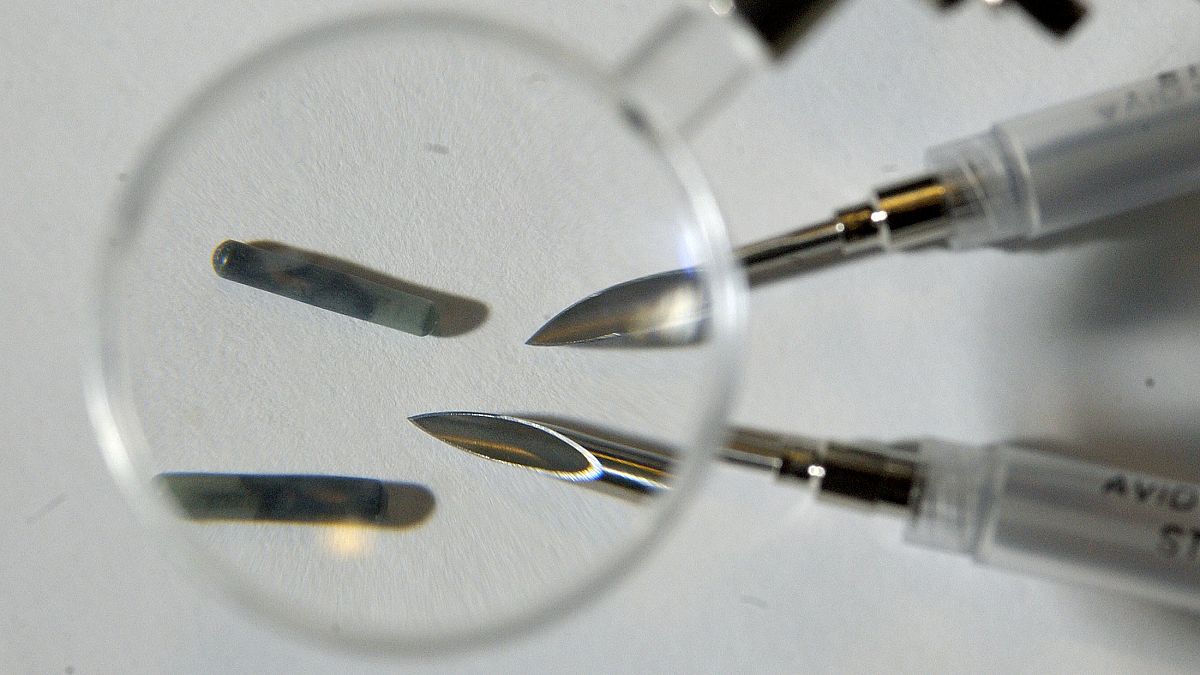Germany is the latest country to show a wave of interest in microchip implants. But why?
Thousands of Germans have started implanting microchips in their fingers to help them carry membership cards and remember security passwords.
Euronews spoke with Sven Becker, head of “I am Robot”, Germany’s only seller of near field communication (NFC) chips. Becker got the inspiration for his business venture from a chip implanted on his friend’s dog and the American biohacking company Dangerous Things.
Since the creation of his company in 2015, Becker estimates that between 2,000 and 3,500 people in Germany have implanted a microchip under their skin — but not all sales come from him; Germans also get chips implanted abroad.
So how does the service work?
People can order the chips from Becker’s website, get it delivered to their homes and then ideally go to a piercing studio to have the microchip implanted with a syringe. Becker says people can pay extra if they want a company’s piercer to implant the chip.
Who buys Becker’s chips?
According to the company owner, there isn't a stereotypical client. His customers come from all age groups, genders and backgrounds. The microchips will set you back between €59.90 and €79.90.
What do people use the chip for?
Most people use the chip as a replacement for their business/contact card, as a substitute for key cards to the gym, office, and house.
Becker says he once sold a microchip to a man who used it to save a link that would direct to his will.
The options of what the microchip can be used for are endless, he added.
People can also buy all sorts of gadgets that work with the chip, such as antennas or a doorknob that syncs with the chip.
Are there any potential risks of implanting a chip under the skin?
As far as Becker is aware, customers do not store information that is too sensitive on their chips. But the risk of having information stolen from a chip is very small, he adds.
“They would need to know you have the implant, hover a phone as close as 5 cm above your hand but they wouldn't have much luck.”
Having a wallet or phone stolen is still far riskier, according to Becker.
Will everyone be sporting microchips in the future?
For now, Becker believes microchip implants remain a small trend in German society.
"Infrastructure is so far behind in Germany that people are only slowly starting to pay with contactless debit cards."
However, if the banks adopt the technology he could see more people use them to make the majority of their payments in the future.
